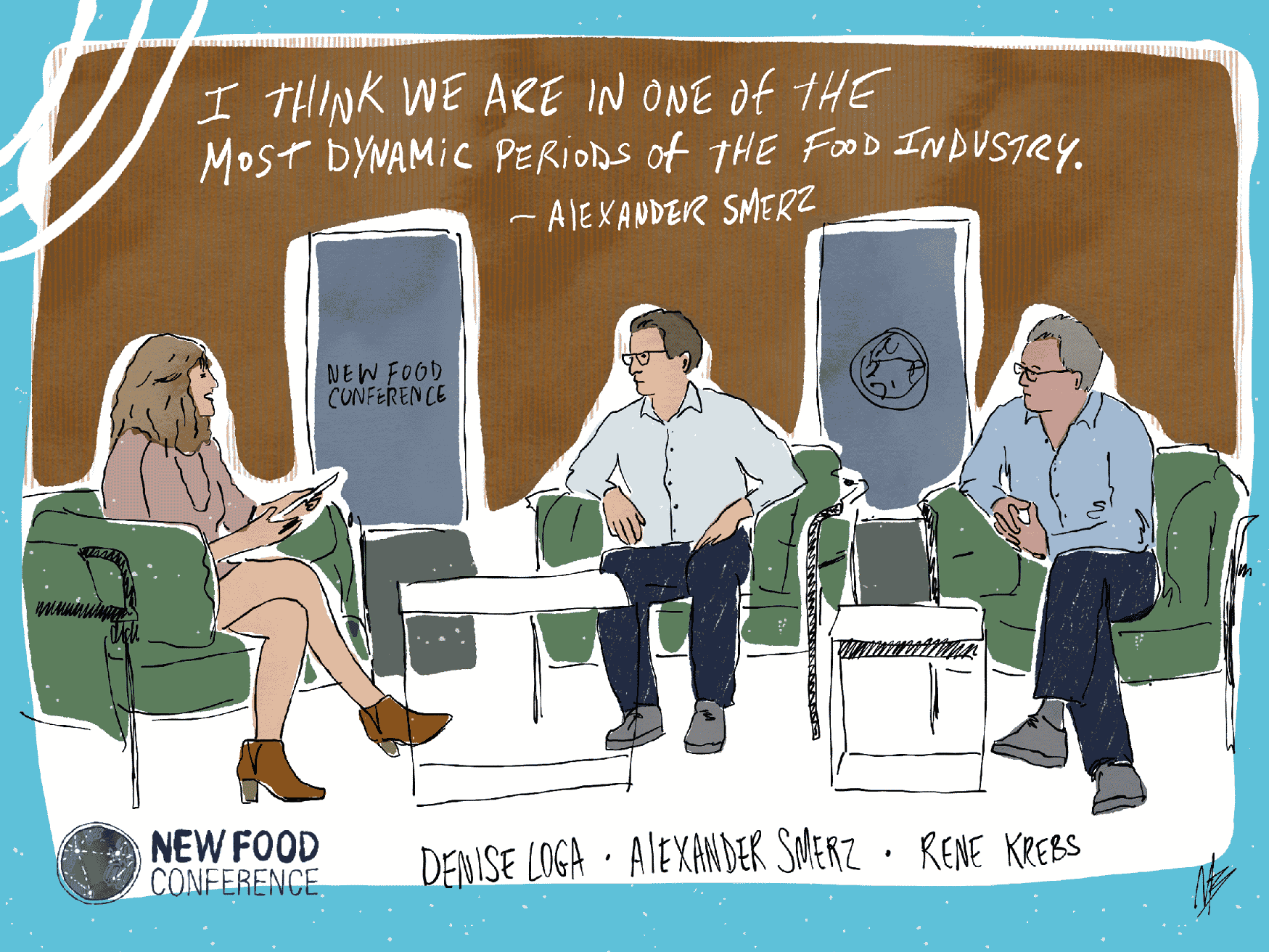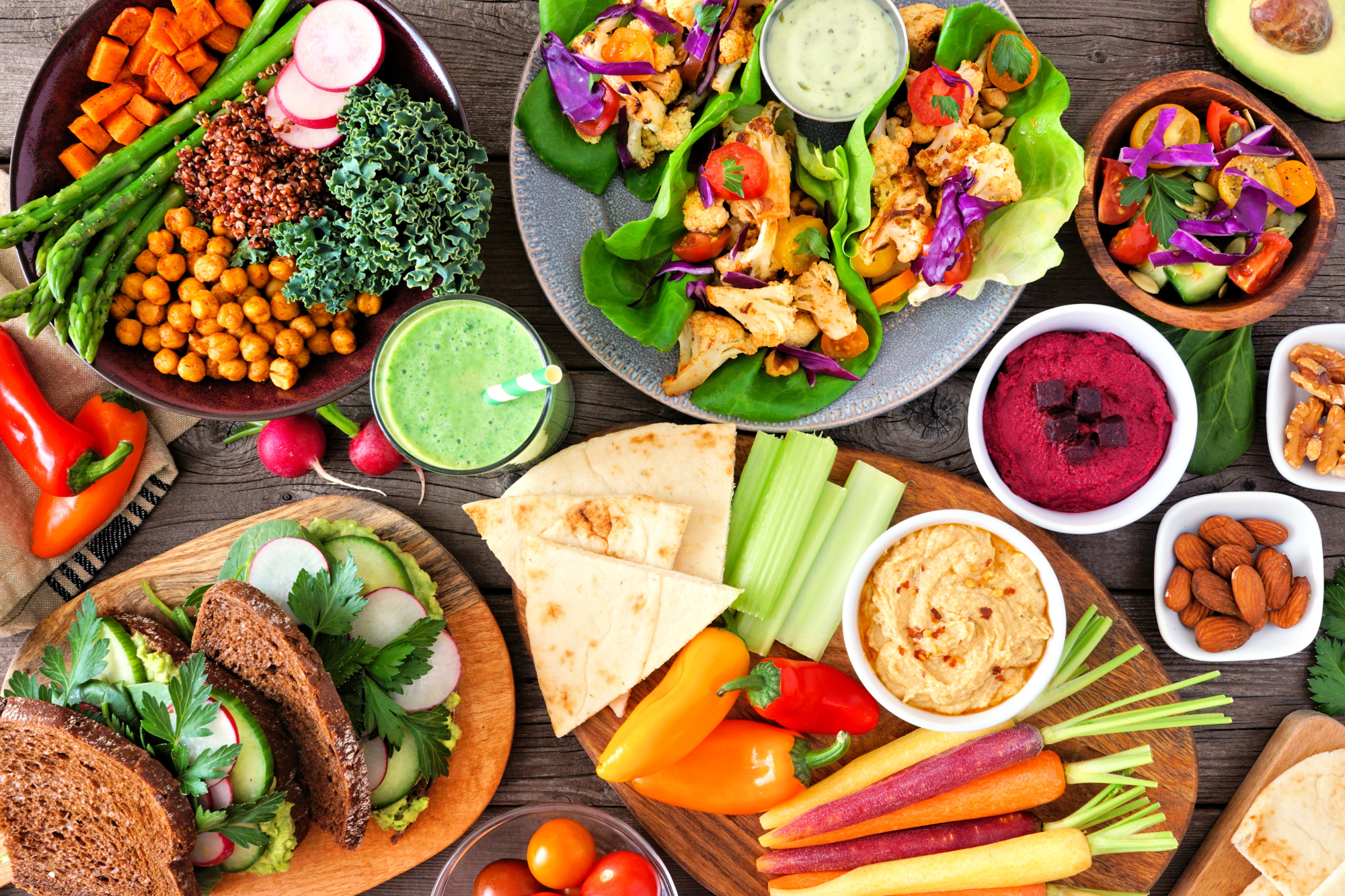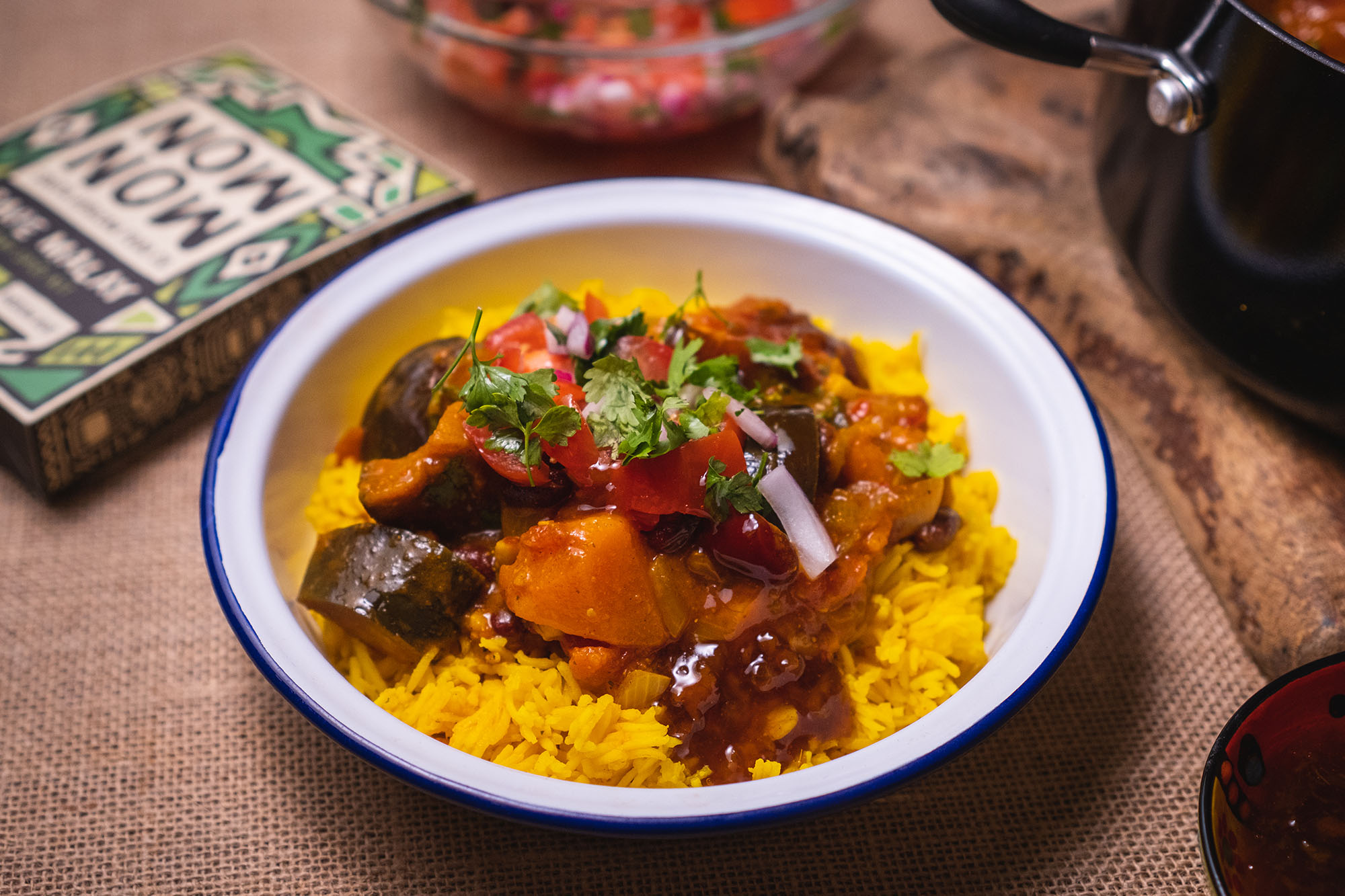The food industry is facing one of the biggest upheavals in its history: plant-based is the order of the day, and innovations in alternative proteins show no sign of stopping. This was impressively demonstrated at the international “New Food Conference” where the who’s who of the industry met online at the end of April. Read on to find out about some of the most important trends that were discussed.
Uniting food industry professionals
Climate crisis, widespread diseases, animal welfare and, last but not least, pandemics: Changing our eating habits can massively contribute to solving some of the biggest problems of our time. More than 50 experts from business, science and politics spoke about the food of the future at the international New Food Conference on April 28 and 29. Some of the biggest names in the food industry, including Josh Tetrick (Eat Just), Will Schafer (Beyond Meat), Rosie Wardle (Synthesis Capital), Nicolas Dhers (Carrefour) and Cecilia McAleavey (Oatly) gathered to discuss the future of the alternative protein movement in lively panel discussions and inspiring fireside chats.
Connecting online: more than 450 private meetings
But how do companies convince consumers to try something new? Where do the ingredients for tomorrow’s food come from? And which products will make it onto the supermarket shelves? More than 400 participants from all over the world followed the discussions and presentations online. Participants scheduled 450+ one-on-one meetings and connected with experts in the virtual exhibition space – including exciting start-ups such as Vly and Better Nature, as well as the event’s sponsors, Rügenwalder Mühle, Simply V and Döhler.
The 8 most important new food trends:
1. The Covid-19 pandemic accelerates the trend towards plant-based proteins. The use of animals for food production is the greatest risk factor for the emergence of pandemics. This increases the urgency to eliminate meat, fish, dairy and eggs from the value chain. By 2035, one in ten meals will consist of alternative proteins, a study by Boston Consulting and the investor Blue Horizon predicts.1
2. New technologies and ingredients are continuously improving plant-based products To reach the masses of consumers, plant-based alternatives must offer familiar taste, texture and preparation methods. New technologies and plant-based ingredients, especially those based on oats and soy, are making it possible. Others are on the rise, such as pea protein and currently still underutilized ‘orphan crops’ like fava beans and lentils. The general rule is: it should be sustainable, healthy and natural.
3. Fish alternatives are the next big thing. In 2019, it was the veggie burger, but in 2021, vegan seafood is projected to be the most popular alternative. Within the last few months, sales of plant-based fish alternatives in Germany have increased more than sixfold. “Seaspiracy”, a film about depleted and polluted oceans, is giving an additional boost to plant-based fish sticks, salmon fillets, and the like. Start-ups all over the world are working on developing fish and seafood alternatives from cell cultures or plant proteins.
April highlights from the plant-based sector
42% of global consumers now consider themselves to be flexitarian. Read here what else is hot news in the plant-based world.
4. Being vegan is not enough: alternatives should taste good, be clean and regional. For sustainability-oriented retail giants like Migros and Carrefour, plant-based is the key to achieving their climate goals – and to meeting growing consumer demand. Plant-based fish and cheese, in particular, are in vogue. Consumers’ expectations are growing in terms of taste, “clean” list of ingredients, regional origin – and affordable prices.
5. Cultured meat is on the menu. Last December, Singapore became the first country to approve the sale of meat from cellular agriculture, requiring no animal to be slaughtered. However, its price is still significantly higher than conventionally produced meat. Only large-scale production, and a policy that no longer supports the conventional animal agriculture industry but promotes cultivated alternatives, will be able to change that.
Cellular Agriculture
ProVeg supports the potential of cultured meat and the cultivation of traditionally animal-based products to change the world for the better. Learn what it’s all about.
6. The best eggs are made of plants. Today, you no longer need chickens to lay eggs: plant-based products replace eggs in omelets, breadings, quiches and cakes. Alternative proteins from peas, potatoes, lupins or mung beans, for example, make this possible. North America is currently the largest market, with sales of egg alternatives almost tripling in 2019. The market leader Eat Just is about to expand into Asia and Europe.
7. Meat alternatives for meat eaters, not vegetarians. The market for meat substitutes is developing more dynamically than ever. According to forecasts by management consultancy Kearney, plant-based alternatives will replace around one-third of meat products by 2030.2 Rügenwalder Mühle, the market leader in Germany, is already reporting equal sales of meat alternatives and classic cold cuts or sausage.3 The most important target group is the steadily growing number of flexitarians.
8. Consumers demand, the food industry delivers, and more people embrace new foods. More and more companies are recognising the need and the potential to satisfy the growing hunger of the world’s population in a resource-efficient way. Despite legal restrictions that are still holding them back, they are finding solutions. The better and more affordable the new products become, the easier it is for consumers to change their behavior and opt for plant-based – an unstoppable upward spiral.
Plant-based foods in Europe: How big is the market?
For the first time in Europe, retail scanning data has been published and analysed in detail, comparing the plant-based-food sectors of different European countries.
Follow-up event in October
The next New Food Conference will take place from 10 to 11 October as part of the Anuga trade fair in Cologne, Germany. The focus will be on cultured proteins – from cellular agriculture and fermentation processes to hybrid products made from plants and cell-cultured ingredients. More information on the website.
References
- BCG (March 2021): ‘Food for Thought: The Protein Transformation’, online at https://www.bcg.com/de-de/publications/2021/the-benefits-of-plant-based-meats [07.05.2021]
- Kearney (2019): ‘When consumers go vegan, how much meat will be left on the table for agribusiness?’, online at https://www.kearney.com/consumer-retail/article/?/a/when-consumers-go-vegan-how-much-meat-will-be-left-on-the-table-for-agribusiness [07.05.21]
- Vegconomist (April 2021): ‘Rügenwalder Mühle – Sales of Plant-Based Products Now Equalling Animal Protein Products’, online at https://vegconomist.com/companies-and-portraits/rugenwalder-muhle-sales-of-plant-based-products-now-equalling-animal-protein-products/ [07.05.21]











